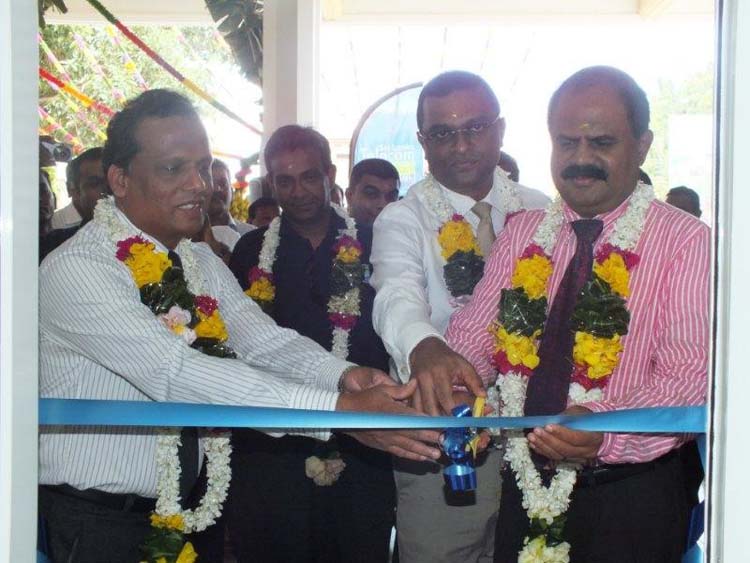
Regus studies reveal remote working as the way of the future
Regus Sri Lanka, the local arm of the world’s largest provider of flexible workspace, has revealed details of a recent global study conducted by Regus on “The realities of remote working”. The in-depth study has helped identify a global shift towards remote working and how it is increasing productivity in companies worldwide.
During the study, over 22,000 workers were asked various questions related to remote working. According to the report, the way the world works has changed significantly over the past 10 years or so. The traditional 9-to-5 approach to office hours is no longer seen as a default option for businesses across the globe. As they increase their dealings with clients, suppliers and partners from across the globe, office workers find themselves working at flexible times and varying locations so that they can be always responsive and ‘on-call’ in order to ensure that the needs of all parties concerned are met promptly and efficiently. Technology has played a huge role in this shift as laptops, smartphones and tablets together with the availability of high speed internet technology such as 4G/LTE and Wi-Fi allow office workers to work from a number of locations. This also means that they are connected to their offices and jobs at all times with increasing intermingling of personal and work life.
Some of the other key findings of this study are given below.
Increase in Remote Working – The trend for moving work and people out of the main office has been steadily increasing over the past few years with 70% of respondents reporting that they are seeing more remote workers compared to five years ago. In countries like Mexico and the USA, 82% and 80% of respondents respectively reported seeing more remote workers than the five previous years. Remote (70%), self-employed (66%), freelance (62%) and part-time (52%) workers have all shown significant growths during the past 5 years.
Most productive outside office – When respondents were asked to identify the work location where they are most productive when out of the main office and 53% selected a Business Centre. Business centres are particularly popular among respondents in India (73%) and China (69%). 63% of those surveyed selected a professional workspace within their home, but only a handful are able to make the investment necessary to set up a professionally-equipped work environment in the home. When this is not possible only 34% select ‘the home’ for flexible working. Collaborative workspaces were also preferred by the respondents with 34% choosing them as the work location where they are most productive, when outside the office.
Cafes, lounges least productive – A key point that was highlighted in the survey was that currently the more popular locations for remote working – such as cafes and hotel lounges – were identified as some of the least productive work locations across the globe. Such locations are known to be noisy and distracting while concerns have been raised about the lack of privacy and support infrastructure required to do work or conduct meetings efficiently.
Better work-life balance – The majority of respondents (60%) believe that working remotely allows them to have a better work-life balance while 69% stated that telecommuting has improved their work-life balance.
Productive mornings – 45% of the respondents also claimed that early morning was the most productive part of the day, with only 36% stating the same about the regular 9-to-5 schedule of a regular office. Commuting (56%), IT glitches (43%) and lengthy meetings (40%) were identified as the 3 worst working day interruptions that reduce productivity in the office.
Changing office etiquette – Office working etiquette has changed significantly in the past five years as respondents reported working more outside of office hours and a growing use of Instant Messaging technologies to keep connects at all times.
More work, more stress – 66% of professionals also reported that they work more out of hours than they used to and as a result 53% of workers claimed to be more stressed. Due to a variety of factors, workers in China are feeling increased stress levels. Even the lowest – Canada, France and Germany – still reported being at least 44% more stressed than five years ago.
Given this background and changing trends, businesses in Sri Lanka and across all parts of the globe looking to get the most out of their workforce are increasingly considering flexible working options. As the limits of both the working day and the office environment are expanded, forward thinking businesses will want to consider which spaces outside the main office best facilitate employee productivity and adapt accordingly.
Founded in Brussels, Belgium, in 1989, Regus is the global workplace provider based in Luxembourg and listed on the London Stock Exchange. Regus’ network of more than 2,000 business centres in 104 countries provides convenient, high-quality, fully serviced spaces for people to work, whether for a few minutes or a few years. Companies like Google, Toshiba and GlaxoSmithKline choose Regus so that they can work flexibly and make their businesses more successful. Regus has opened wherever its 1.8 million members want support – city centres, suburban districts, shopping centres and retail outlets, railway stations, motorway service stations and even community centres.


